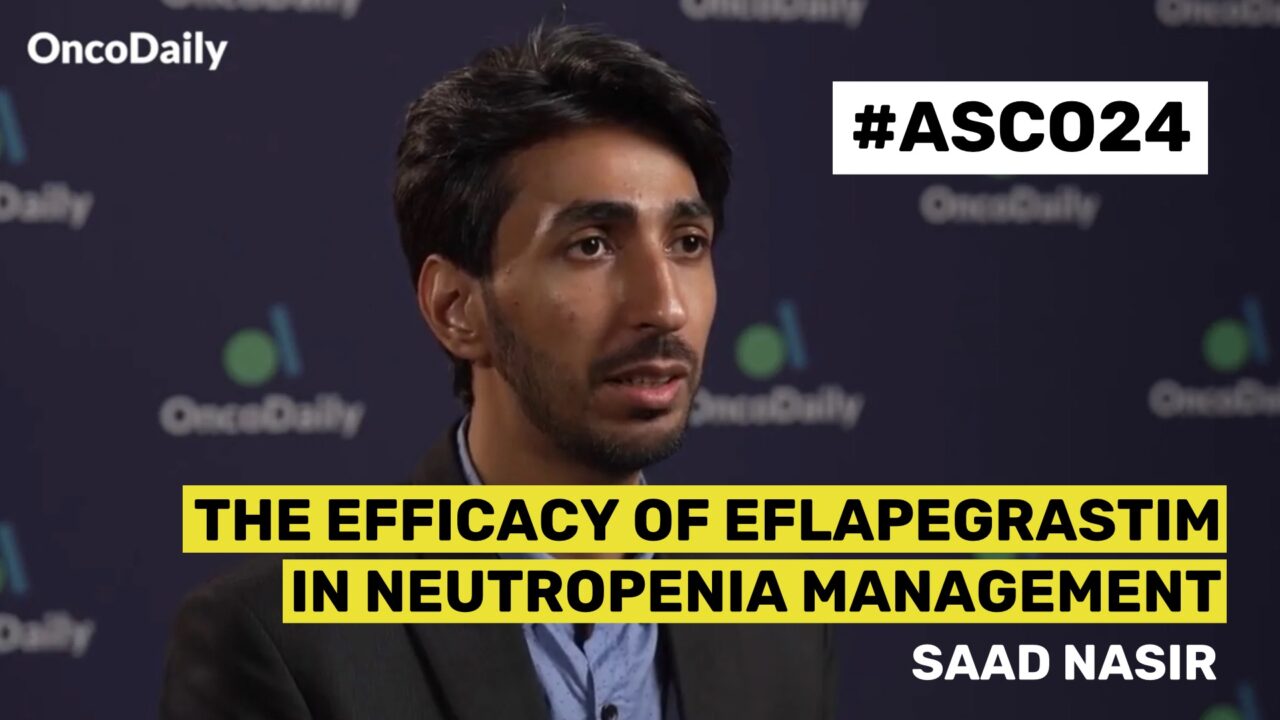The American Society of Clinical Oncology (ASCO) Annual Meeting is one of the largest and most prestigious conferences in the field of oncology. This year, the meeting took place from May 31 to June 4 in Chicago, Illinois. The event gathers oncologists, researchers, and healthcare professionals from around the world to discuss the latest advancements in cancer research, treatment, and patient care. Keynote sessions, research presentations, and panel discussions are typically part of the agenda, providing attendees with valuable insights into emerging trends and innovations in oncology.
This year, OncoDaily was at ASCO 2024 for the first time covering the meeting on-site. We had the pleasure of interviewing researchers who summarized the highlights of their work.
In this video, Dr. Saad Nasir, Medical oncology trainee at Aga Khan University Hospital, shared insights on ‘Comparative analysis of efficacy and safety profiles between conventional pegfilgrastim and its biosimilar agents in patients receiving cytotoxic chemotherapy: A systemic review and meta-analysis.‘
Hi, my name is Dr. Saad Nasir and I’m a medical oncology trainee at the Aga Khan University Hospital of Pakistan. I’m here at ASCO 2024 to present my abstract in which we have compared the efficacy and safety profiles of conventional Pegfilgrastim with its biosimilar agents. So initially, filgastrin was the originator compound which was used to prevent chemotherapy-induced neutropenia and then we moved on to a single-dosing agent Pegfilgrastim.
Now, since 2011, we have started doing studies where we are now using biosimilar compounds of Pegfilgrastim. These compounds are available throughout the world and they provide a cost-effective approach in preventing chemotherapy-induced neutropenia. Now, what we did, we asked this question whether can we move on from conventional Pegfilgrastim? Is there enough evidence to support this?
We included 10 randomized clinical trials in our meta-analysis and when we did a subgroup analysis to understand the efficacy of the biosimilar agents, we found out that one of the compound called the EflaPegfilgrastim, it outperformed conventional Pegfilgrastim in reducing days of neutropenia.
The other thing that we looked at was safety and clinical profiles and what we found out was the biosimilars are similar in efficacy. They’re also similar in terms of safety profiles as well. We looked at bone pain as an adverse event which is the most commonly found adverse event in these patients.
In summary, what we recommend is to look at EflaPegfilgrastim for clinical outcomes in these patients and also do a cost analysis whether we can now move on from the conventional Pegfilgrastim and provide patients opportunity for a cost-effective, efficacious biosimilar of Pegfilgrastim. Thank you.
More videos and content from ASCO 2024 on OncoDaily.


